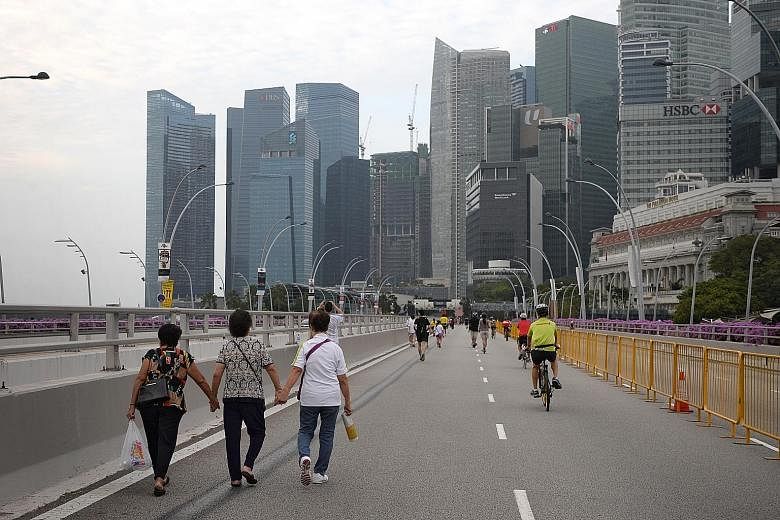There could be less space for parking, which will be more expensive, in future, as Singapore adjusts its policies and norms to be in line with other global cities, said Transport Minister Khaw Boon Wan in Parliament yesterday.
This was a key part of the "quantum leap" the country needed to make to go car-lite, he said.
In future, developers would also have to submit a "Walking and Cycling plan" for approval, to show their buildings provide safe and convenient access, and infrastructure for pedestrians and cyclists.
Senior Minister of State for Transport Josephine Teo said this would improve accessibility so walking would be a more attractive commuting option. "Sometimes, large plots of privately owned land and buildings can get in the way of a more direct walking route," she said.
In the bigger picture, these measures would help Singapore reduce its reliance on the car.
Mr Khaw also said Singapore needed to rethink its car and parking policies, as it was already housing one million vehicles - a population that was nearing its peak.
-
Transport upgrades
-
• Distance between MRT breakdowns to increase to 200,000 train-km this year.
• Shorter MRT operating hours on the cards to allow for more maintenance.
• Singapore Rail Academy to be set up in second half of this year to deepen our rail engineering capabilities.
• Motorised bicycles to be registered
• More street-level pedestrian crossings near MRT stations.
• Parking charges to rise, and supply of parking spaces to be crimped.
"London, Paris and many Japanese cities have introduced car- free days, and reduced carparking norms," he said. "These are measures to help reset their motorists' attitudes towards cars. We should gradually adjust too."
Just a day earlier, National Development Minister Lawrence Wong pointed out that public parking charges in Singapore were lower than in other cities and might have to be raised.
This is the first time that two ministries have made overtures to raise parking charges to curb car use.
Transport expert Henri Blas from global engineering group Aecom felt this was a good move. He said that while it might be expensive to own a car due to the vehicle quota system, the system facilitates use of cars after they are bought.
"If you look at the Central Business District, actual provision of parking is very good and cost of parking is low compared to other cities," he said.
He pointed out that cities like Paris have reduced parking provision by as much as 20 per cent, and this could be reasonable here too.
Mr Khaw also said yesterday that in the next 15 years, the transport landscape would change dramatically, with more active mobility, first-and-last-mile connectivity, on-demand point-to-point transport options and greater pedestrianisation.
He added that learning to drive and owning a car might be a thing of the past, and Singapore needed to prepare for such a future now.
The Japanese have observed a loss of interest in cars among their young and have coined a term - "kuruma banare" or demotorisation - for the phenomenon.
"Indeed, why is there a need to own a car, when you can easily summon up a driverless pod (a small autonomous vehicle) with a few strokes on your mobile?" he said.
"Private cars will likely start to go the way of horse carriages, if not in 15 years, definitely in 20 or 25 years' time... We need to prepare Singapore, Singaporeans and our industries for this brave new world."


